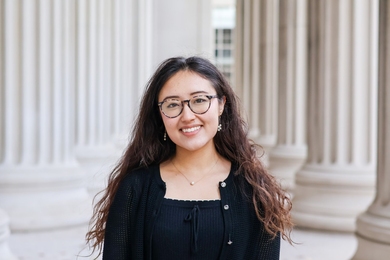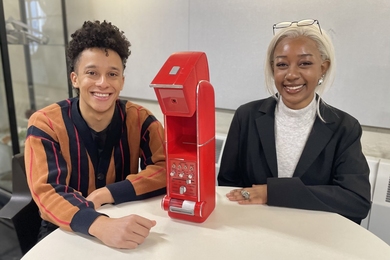On Monday, Feb. 5, Associate Professor James L. Sherley began a fast on campus to protest both the decision not to promote him to tenure and the outcome of his previous grievance process.
In an e-mail to the community Feb. 5, Vice President for Institute Affairs and Secretary of the MIT Corporation Kirk D. Kolenbrander expressed concern for the well-being of Sherley and his family. Noting that President Susan Hockfield and Provost L. Rafael Reif had encouraged Sherley to seek other means to voice his concerns, he stated that MIT would uphold Sherley's right to express his views in a manner that did not disrupt the work of the Institute. For full text of Kolenbrander's letter, see below.
In addressing a gathering of colleagues, family and friends outside Hockfield's office on Monday, Sherley expressed his hope that the administration would put in place processes by which to recognize and redress racism, when it occurs.
In a message sent on Feb. 5, Chancellor Phillip L. Clay asked that students respect both Sherley's right to disagree publicly and one another's views about Sherley's statements. Clay also announced that opportunities would be available soon to discuss the tenure process and related matters.
Reif outlined the process by which Sherley's tenure case had been reviewed in a Jan. 29 message to the faculty. In it he affirmed that fairness and integrity in academic processes are of "fundamental concern to the Institute." To read his complete statement, please go to web.mit.edu/provost/letters/letter01292007.html.
Letter from Kirk Kolenbrander to MIT community
"As many in the community know, our colleague Professor James L. Sherley began a fast on campus this morning. We are deeply concerned for Professor Sherley's well being, for that of his family, and for the MIT community. The President and Provost have encouraged Professor Sherley to seek other means to voice his concerns, and we continue to hope that he will do so. Should he continue with his fast, however, MIT will respect his right, as a member of our community, to express his views in a manner that does not disrupt the work of the Institute.
"We understand that this situation raises complex issues for many in our extended community, most especially Professor Sherley's colleagues and friends. In this difficult time, it is our sincere hope that those who hold diverging views on the issues that Professor Sherley has raised in his public statements, and in the method he might choose to express his position, will nonetheless continue to speak and act in the spirit of mutual respect and dialogue that marks the Institute at its best."
A version of this article appeared in MIT Tech Talk on February 7, 2007 (download PDF).





